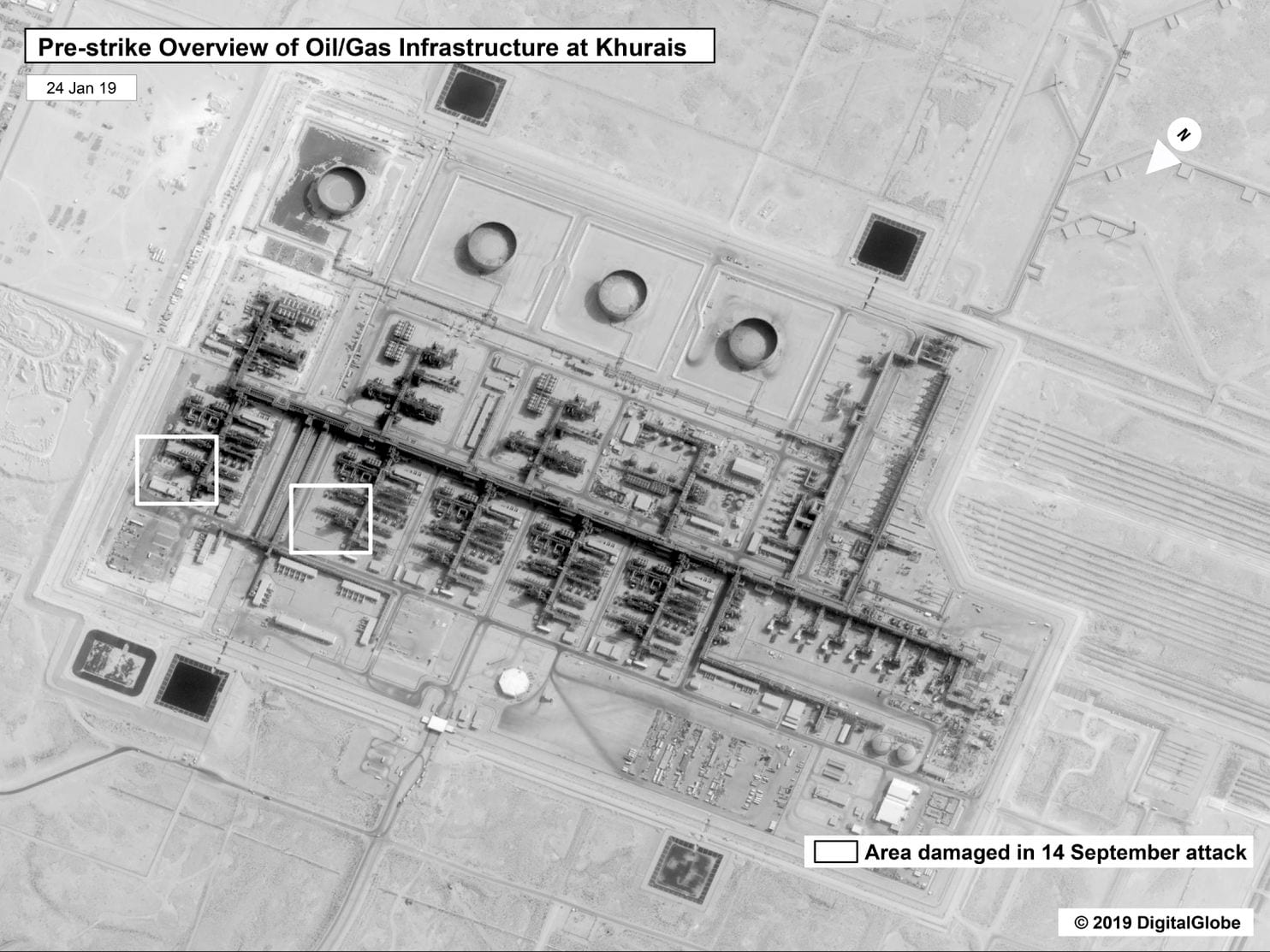By: Shane HarrisErin Cunningham & Kareem Fahim – washingtonpost.com –
President Trump on Monday stopped short of directly blaming Iran for a major attack on Saudi Arabian oil installations, allaying, at least for the moment, fears of a military conflict between the United States and Iran.
Officials in Washington and Riyadh spent the day analyzing satellite photos and other intelligence that they said indicated that Iranian weapons were used in the assault on the Saudi Aramco facilities. But they presented no new information that would conclusively show that Iran directed or launched the attack, which Saudi officials said led to a 50 percent reduction in oil production.
U.S. officials rejected claims by Houthi rebels in Yemen, who receive Iranian support, that they had launched the strike Saturday, describing it as more sophisticated and powerful than anything the rebels could accomplish on their own.
But neither Trump nor Saudi leaders would say unequivocally that Iran was responsible.
President Trump publicly discussed Iran three times on Sept. 16, saying “it’s looking” the country was behind an attack on Saudi oil fields. (Drea Cornejo/The Washington Post)
“It’s looking that way,” Trump told reporters in the Oval Office, during a meeting with Bahrain’s crown prince. “As soon as we find out definitively, we’ll let you know.”
Trump’s reluctance to assign blame appeared to reflect his long-standing desire to keep the United States out of wars, despite his tweet Sunday that the United States was “locked and loaded depending on verification.”
“I’m not looking to get into new conflict, but sometimes you have to,” Trump said Monday.
Asked what message he wanted to send to Iran, the president replied, “I think I’ll have a stronger message, or maybe no message at all, when we get the final results of what we’re looking at.”
“There’s no rush,” he added.
Trump didn’t rule out a military response but made clear that the Saudis would take the lead — and pay the bill.
“The fact is that the Saudis are going to have a lot of involvement in this if we decide to do something. They’ll be very much involved, and that includes payment,” Trump said.
For their part, Saudi officials affirmed that Iranian weapons were used in the attack but also stopped short of singling out Iran in statements that appeared to reflect fears across the Persian Gulf of a wider and more violent conflagration.
Col. Turki al-Malki, the spokesman for the Saudi-led coalition fighting in Yemen, said initial investigations into the strikes on the oil facilities had found that “these weapons are Iranian weapons.” He added that the attacks “did not originate in Yemeni territory as claimed by the Houthi militias.”
Malki said that investigators were continuing to determine the origin of the attacks and that the final results, including a display of weapons remnants, would be publicly shared “soon.”
“We have the ability to secure vital and economic installations,” Malki said. “But we are dealing with a terrorist attack from terrorist groups.”
A Saudi Foreign Ministry statement released later Monday said the kingdom was inviting United Nations and international experts “to view the situation on the ground and to participate in the investigations.”
“The Kingdom will take the appropriate measures based on the results of the investigation, to ensure its security and stability,” the Foreign Ministry said in its statement, which also called for an international response to what it deemed a threat to “global energy supplies.”
“The Kingdom calls upon the international community to assume its responsibility in condemning those that stand behind this act, and to take a firm and clear position against this reckless behavior that threatens the global economy,” the statement said.
U.S. military investigators arrived at the attack sites in Saudi Arabia within the past day and were gathering intelligence to learn more about the weapons used, a U.S. official said Monday.
Pentagon officials have urged restraint in any response, arguing against a potentially costly conflict at a time when the U.S. military is seeking to reduce its Middle East footprint, officials familiar with the conversations said Monday.
American officials were working under the assumption that the strikes did not emanate from Yemen, nor do they believe that the attacks were launched by Tehran’s allies in neighboring Iraq, said the official, who was familiar with discussions about the attacks but was not authorized to speak publicly.
Senior U.S. officials were continuing to deliberate over how to respond.
Iran denied any involvement. China and European countries warned against hastily assigning blame.
To see the remainder of this article and others from the Washington Post, click read more.
Source: Trump stops short of directly blaming Iran for attack on Saudi oil facilities – The Washington Post
 Listen Online
Listen Online Watch Online
Watch Online Find a Station in Your Area
Find a Station in Your Area








 Listen Now
Listen Now Watch Online
Watch Online
